10 Tips for Winterizing Your Tractor
Published on December 3, 2024 by Kimberly Steele
As we prepare to close out the end of 2024, the winter season is quickly approaching. Winter officially begins in December, bringing cold temperatures and frozen precipitation to many areas across the country. Whether you will be storing your tractor during the winter months or using it to assist with projects like snow removal, it is important to winterize your tractor for longevity, and to prevent costly repairs and replacements in the future.
Winterizing Tips
1. Fuel: Most tractors run on diesel. When outdoor temperatures drop below 20˚ Fahrenheit, wax crystals will form as diesel fuel freezes. These crystals prevent fuel from flowing through a fuel line and the tractor parts are at risk of being clogged and damaged. Adding an anti-gel additive to the fuel prior to cold weather setting in will prevent the wax crystals from forming and keep your tractor running smoothly. If you happen to own a gas tractor, it is important to drain the fuel if you won’t be using it as gas will become stale over time. Stale gas can also clog parts and prevent the tractor from running properly.
2. Fluids: Winter is a time to check all fluid levels in your tractor and make sure they are filled to the brim. Some primary fluids to check would be engine oil, hydraulic fluid and coolant. When a tractor sits for a period of time, condensation can form in parts of the tractor if there is any room for water. Condensation water mixing with fluids could lead to corrosion, performance issues, and even frozen damage to parts. When fluids are full, condensation has nowhere to form which prevents watered down fluids in your tractor.
3. Battery: It is important to disconnect and remove the battery altogether if you will not be using the tractor during the winter season. Cold weather drains batteries, and they also have the potential to freeze and crack causing leaks. Keep the battery away from freezing conditions if possible and it’s a good idea to occasionally keep it on a battery maintainer or trickle charger. If you do plan to use the tractor during winter, definitely keep a charge on the battery so it will be ready when needed and to maintain the quality of the battery. Keep in mind that a battery life is about 6-8 years.
4. Oil Change and Maintenance: It’s important to conduct routine maintenance on your tractor once a year. Changing the oil, transmission fluids, and filters prior to winter storage warrants confidence that your tractor will be well maintained and ready to go when the springtime rush arrives. Another upkeep consideration would be removing any dirt and debris from the radiator to prevent overheating and add antifreeze. Running antifreeze through anything that uses water like a sprayer, prevents corrosion and keeps fittings from cracking. Taking the time to grease and lubricate all moving parts such as bearings and joints is important. This can be done to tractor attachments as well. Finally, don’t forget to make sure all tires are inflated properly. Cold temperatures cause air molecules to slow down and group together, decreasing the air pressure.
5. Repairs: While performing routine maintenance on your tractor, go ahead and take care of any necessary repairs as well. Tractors are an investment. Spring is too busy to worry over damaged equipment. You will want your tractor to be fully functional in spring.
6. Clean it up: With things slowing down this time of year, it’s the perfect opportunity to give your tractor a good cleaning. This will keep it looking good for a longer period of time. Also remember that dirt can actually freeze to a tractor and if combined with moisture, this can run down the tractor and even cause clogs to happen. A clean tractor is ideal when storing for winter.
7. Winter Storage: Elements can be harsh over winter months, so the location of your tractor is important. If possible, you want to store your tractor in a place where snow and precipitation can’t reach it. A temperature-controlled environment is preferred, but a shed or barn will also work fine. As a last resort, a heavy, waterproof tarp will work. Consider tipping tractor seats forward if not covered with a cab so they will not hold water or be exposed to UV rays. And don’t forget rodent control! In winter months rodents will look for areas to build nests and sleep, and they love to feed on wires. Rodent damage can be common during winter storage and you don’t want to face an expensive repair when it’s time to put your tractor back to use. Rodent repellant or pest control spray will save you from a big headache in the future.
8. Attachments: Your tractor doesn’t do all the work by itself. Attachments and implements are essential for getting jobs done. It is crucial that you not only winterize your tractor, but also your attachments. Be sure to clean the top of your bush hog and park it where it doesn’t hold moisture and rust out the deck. You don’t want water to build up and freeze inside your front-end loader, so make sure buckets are tipped forward for storage. PTO shafts can freeze up over winter. Remove PTO shafts, lubricate them and store in a dry, clean place. The key is keeping attachments and implements clean, lubricated and away from the elements as much as possible to keep them working properly.
9. Review your Owner’s Manual: With less daylight and cold temperatures, we tend to spend more time indoors during winter months than any other season. It’s a perfect time to browse through your tractor manual and freshen up your knowledge on your model. Reviewing information about your tractor can provide you with knowledge, reminders, and safety tips.
10. Put it to use: For some, winter can be a busy time for tractor use. If you live in a colder climate, you may be faced with a lot of snow. Tractors are the perfect machine for moving snow or pulling someone out of a ditch. LS Tractor offers snow blowers and front blades compatible with most LS models to help with snow removal. If you plan to use your tractor this season, plug the battery into a maintainer to prevent it from draining. Consider tire chains or snow tires for better traction in icy conditions. Check all tractor lights to ensure they are in good working condition for visibility as there are less daylight hours in winter. Be sure to monitor your tractor and address any issues promptly.
Inevitably, winter is coming. A tractor is an important asset and vital for farming and property upkeep. We hope you will keep your tractor running as long as possible by winterizing your investment by using these 10 tips this season.

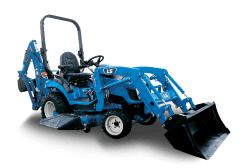
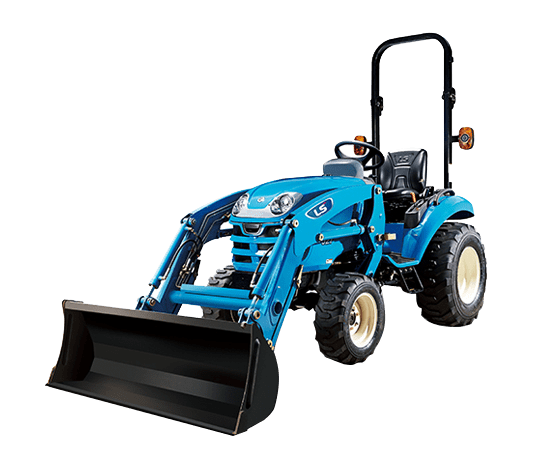
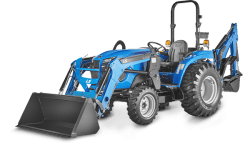
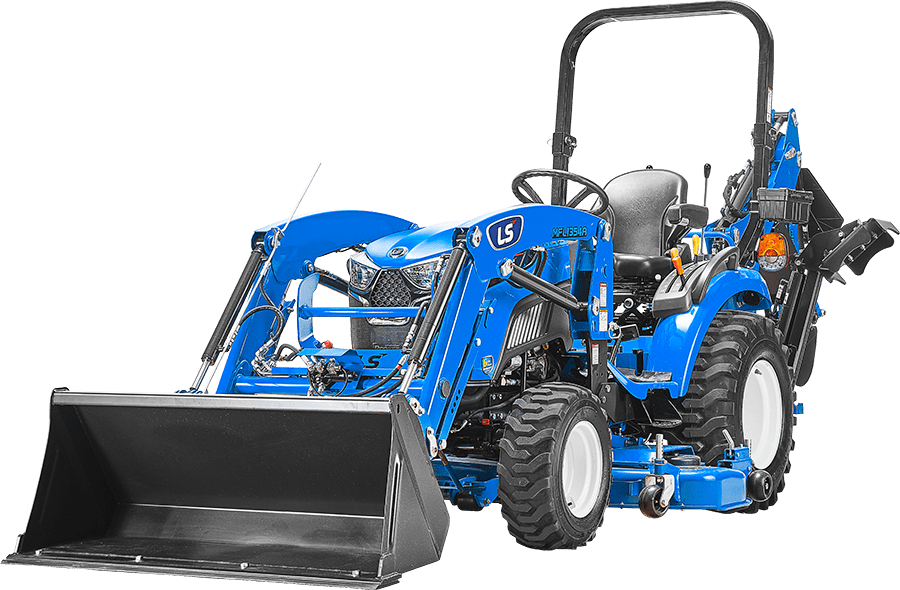
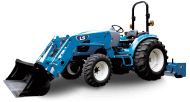
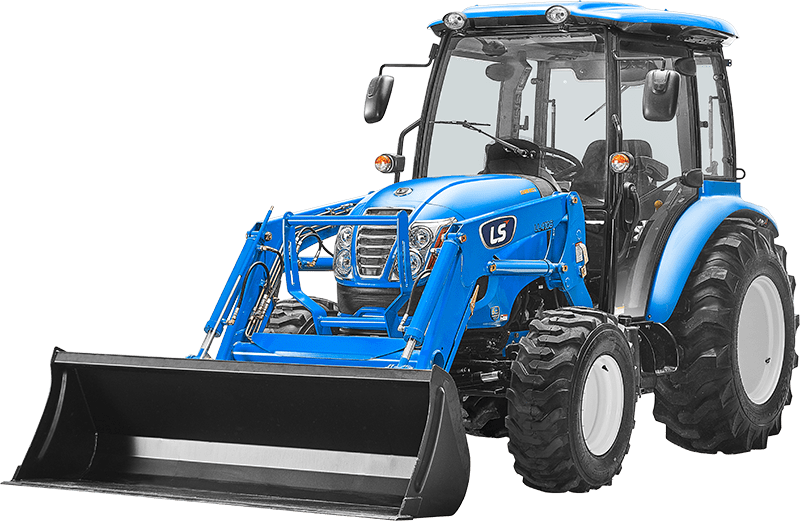
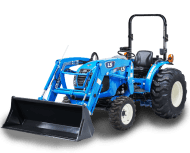
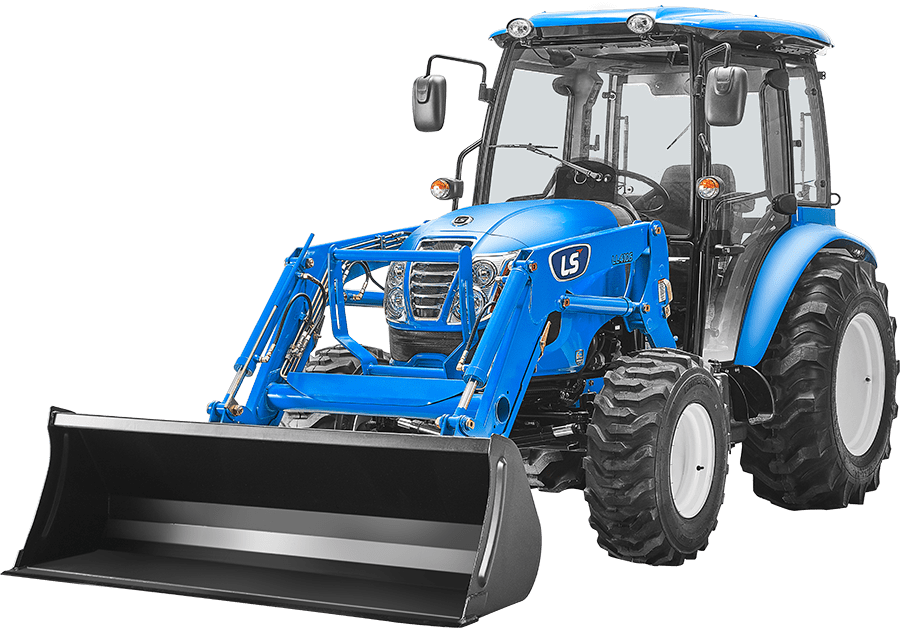
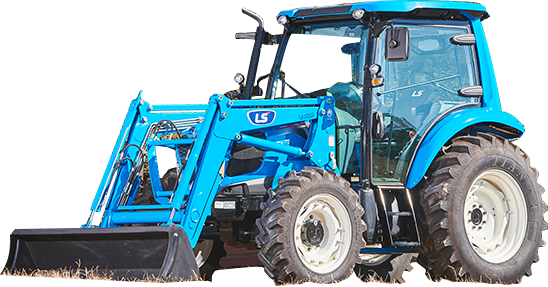
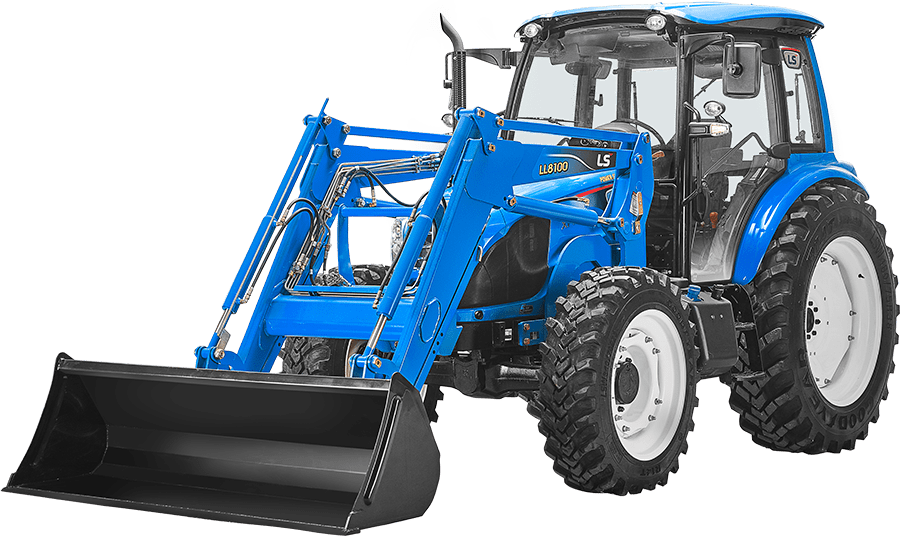


 Skip to content
Skip to content